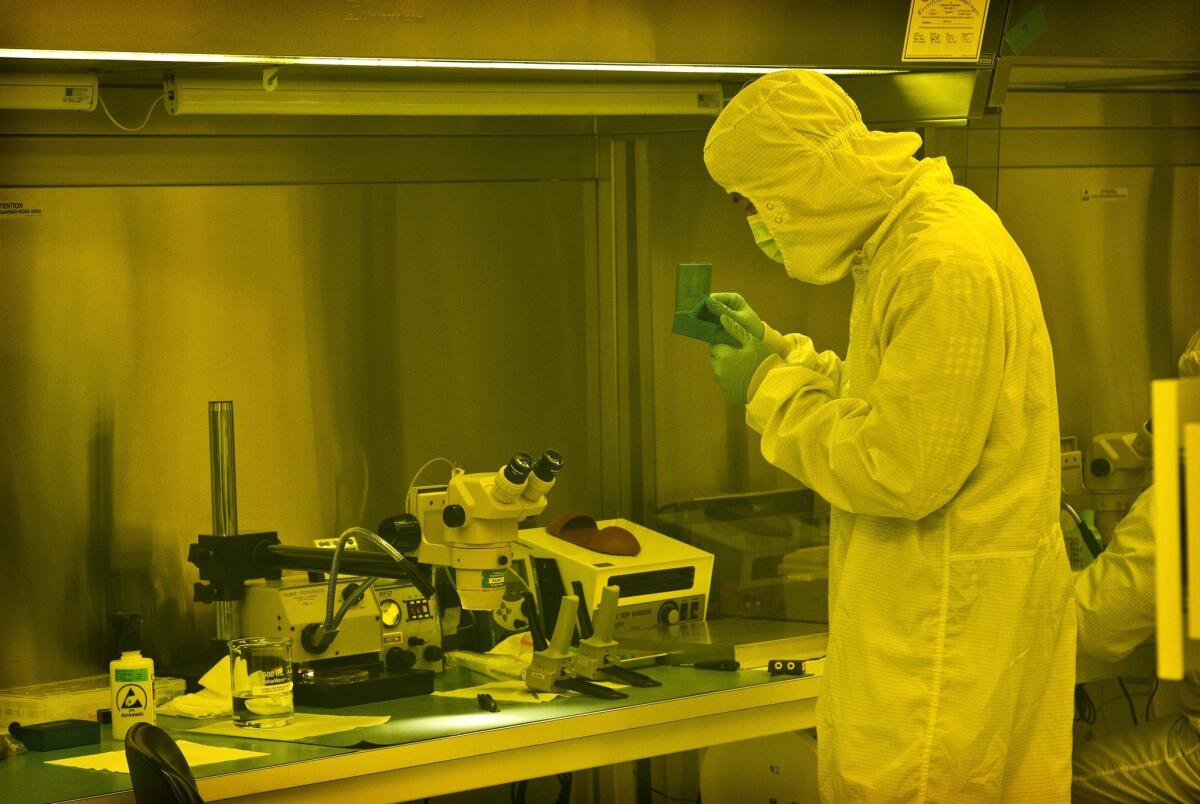House OKs permanent research tax credit despite dispute over funding

- Share via
Reporting from Washington — The Republican-controlled House voted Friday to permanently extend and expand an expired business tax credit for research and development expenses, defying a veto threat from the White House over the bill’s $156-billion cost.
There is broad bipartisan support for the tax break, which is strongly supported by business groups. But there is sharp disagreement in Congress over how to pay for it and the House vote split largely along party lines.
A permanent extension of the tax credit is a top priority for California firms, particularly high-tech companies. The credit expired in December along with many other temporary tax provisions.
“A seamless extension of the research credit and other expired tax provisions will have a positive impact on businesses and provide them the certainty needed to make investment and hiring decisions,” said John Engler, president of the Business Roundtable, an association of top corporate chief executives.
The 274-131 House vote Friday included 62 Democrats joining with all but one Republican in support of making the research and development tax credit permanent.
Rep. John Campbell (R-Irvine), the lone Republican to vote against the bill, said he wants to lower the overall corporate tax rate by eliminating specialized tax credits.
“The r&d tax credit is one of the biggest and most unbalanced of these credits,” Campbell said. “Rather than reinstate it for only a select few industries, we should have taken this opportunity to lower the rate for everyone.”
President Obama has called for Congress to make the r&d tax credit permanent so companies can count on its availability instead of waiting for lawmakers to pass short-term extensions every year or two.
But the White House issued a veto threat this week, complaining the bill would add to the deficit because the $156 billion it would cost to make the expanded r&d tax credit permanent was not offset by new revenue or budget cuts.
Obama wants to pay for the additional costs by closing unspecified tax loopholes.
Most Democrats support the White House position and the Senate is not expected to vote on the bill.
Instead, the Democratic-controlled Senate is planning to consider a retroactive two-year extension of the r&d tax credit along with extensions of other expiring tax provisions.
“This really is not about the r&d tax credit,” Rep. Sander Levin (D-Mich.) said Friday, noting he and most Democrats support it.
“It’s whether we make this permanent without paying for it,” he said. “It’s fiscally irresponsible to do so, and it endangers key programs that matter for all Americans.”
But House Speaker John Boehner (R-Ohio), said the Senate should take up the bill to give businesses certainty.
“This bill allows business owners to plan for the future, encouraging them to make decisions today that will translate to more jobs and a stronger economy in the future,” Boehner said.
More to Read
Inside the business of entertainment
The Wide Shot brings you news, analysis and insights on everything from streaming wars to production — and what it all means for the future.
You may occasionally receive promotional content from the Los Angeles Times.












